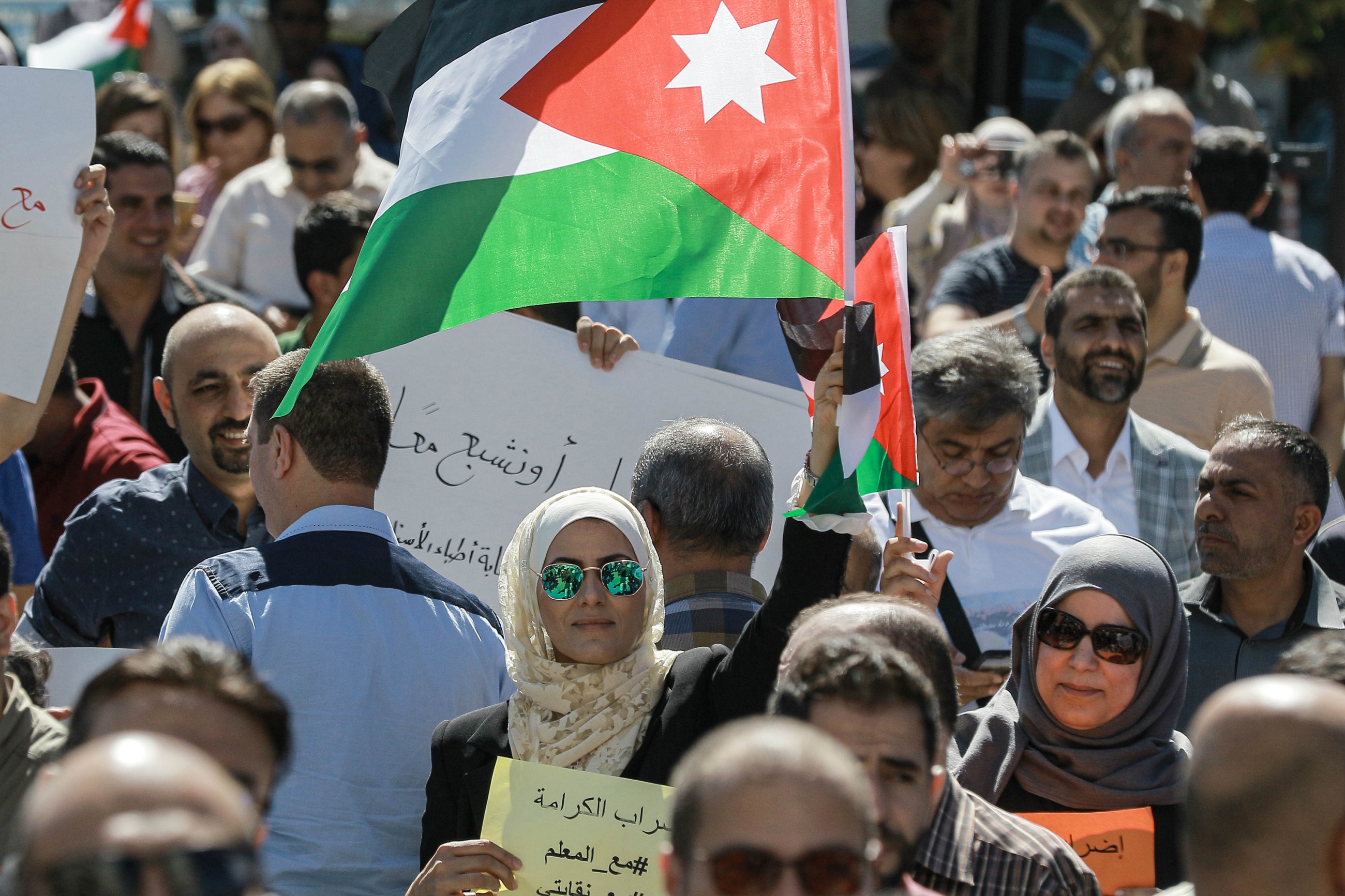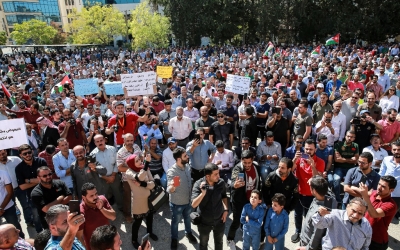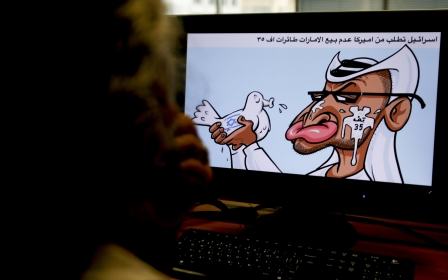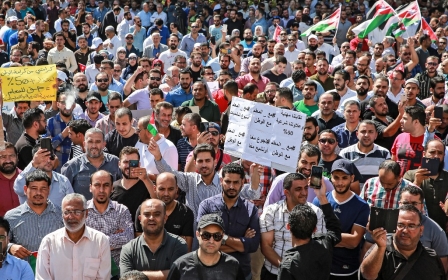Jordan should free teachers and end blanket ban on protests, rights group says

Jordanian authorities should release all teachers arrested in a crackdown on their union and stop exploiting the coronavirus pandemic to stifle peaceful dissent in the name of public health, Human Rights Watch has said.
The rights organisation said in a report on Thursday that, since authorities raided the Teachers' Syndicate headquarters and 11 of its branches across the country on 25 July, the government had been "exploiting the state of emergency to crack down on public outrage", with its ban on public gatherings of more than 20 people.
New MEE newsletter: Jerusalem Dispatch
Sign up to get the latest insights and analysis on Israel-Palestine, alongside Turkey Unpacked and other MEE newsletters
On Sunday, Jordan announced the release of the union's 13 elected council members, who led a campaign for higher pay in the kingdom, where the economy is reeling from the Covid-19 pandemic.
"Other union leaders and demonstrators remain in detention," HRW said in a statement.
"The authorities should also release anyone held arbitrarily in administrative detention," it added.
Almost 140,000 teachers are members of the syndicate, which was founded in 2011. According to the rights group, police have arrested teachers and other protesters across the country.
HRW, based in New York, listed several examples of detained protesters in the capital, Amman, as well as in other cities including Irbid, Karak, and Mafraq.
'Exploiting' the pandemic
Several protesters detained by police were forced to sign pledges that they would not engage in further demonstrations, the rights organisation said, under threat of fines ranging from 20,000 Jordanian dinars (US$28,200) to 50,000 dinars ($70,500).
"They made me look and feel like I am a criminal, a terrorist," one protester from Karak said. "I'm not an activist, I don't take part in anything besides the [teachers' protests]."
Michael Page, HRW's deputy Middle East director, said Jordanian authorities were exploiting the coronavirus pandemic to suppress dissent.
"The Jordanian government, despite promises to the contrary, is exploiting the state of emergency to crack down on public outrage over the arbitrary government closure of the Teachers' Syndicate," he said.
"Jordan should not use the pandemic as a pretext to repress expressions of public concern."
Authorities have also banned any media coverage of the judicial investigations into the teachers' union, and two journalists who had been covering the protests have been beaten.
HRW slammed the gag order, saying in a statement last week that the country's "shrinking space for journalists to operate reflects the country's slide into repression".
Middle East Eye delivers independent and unrivalled coverage and analysis of the Middle East, North Africa and beyond. To learn more about republishing this content and the associated fees, please fill out this form. More about MEE can be found here.





